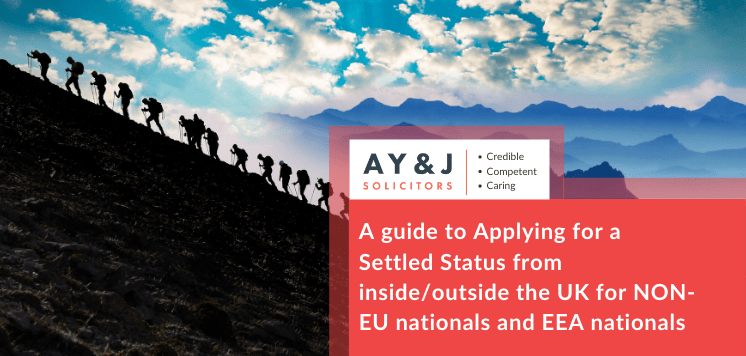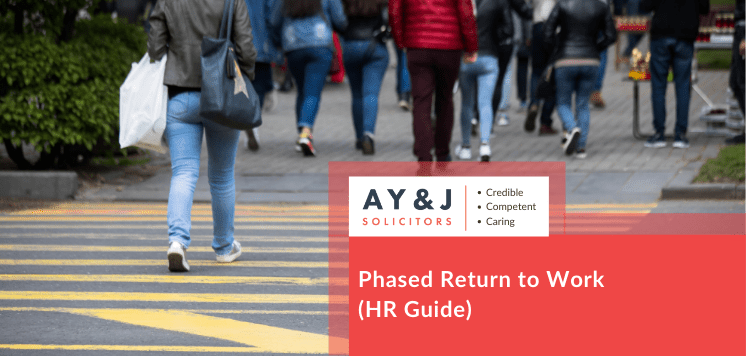Disclaimer: The information in this blog is accurate as of its publication date. Any updates after that date are not reflected here.
Since the enactment of the Immigration Act in 1971, the UK Parliament and Secretary of State for the Home Department have introduced many laws, rules, and regulations to cover the specific requirements for each type of immigration category. Despite this, in our experience, people always have circumstances that never fit into any UK immigration category at all. In general, these circumstances are considered as ‘Outside the Rules’. In such cases, the caseworkers appointed by the Home Office exercise their “Residual Discretion” under the Immigration Act 1971 to grant Leave Outside the Immigration Rules, mainly based on compelling, compassionate grounds other than family and private life medical, asylum or protection grounds which Immigration Rules cover.
Table of Contents
Circumstances that are covered under the “Leave Outside the Rules”
At the starting point, it would be worth mentioning that Leave Outside the Rules grants are not very common; such leaves are granted on a case-by-case basis.
The circumstances that are covered under the Leave Outside the Rules are mainly based on compelling, compassionate factors including exceptional circumstances, i.e. a refusal of entry clearance or leave to remain would result in unjustifiably harsh consequences for an applicant or their family, but which do not render refusal a breach of ECHR Article 8, refugee convention or obligations. The Home Office guidance does not provide many details; however, someone might qualify broadly under two circumstances: (a) emergency or unexpected events, or (b) a crisis, disaster or accident that could not have been foreseen.
It is also possible to be considered under the Leave Outside the Rules even if someone has not made an application specifically under Leave Outside the Rules, e.g. someone has made an application for Leave to Remain as Partner although they do not meet all the requirements and any of exceptions or concessions under the Immigration Rules does not apply to them. In such circumstances, the caseworkers ideally consider whether Leave can be granted Outside the Rules. However, the golden rule is that the applicant making an application and considering the Leave Outside the Rules must not fall under the general grounds of refusal as set out in Part 9 of the Immigration Rules.
One of the classic examples of Leave Outside the Rules application is when an Adult Dependent Relative, e.g. an elderly parent or sibling, makes an application for Leave to Remain in the UK following entry as a visitor or under any other category on the grounds of dependency to their sponsor. Although such an application can only be made outside the United Kingdom, and under the Immigration Rules, such Leave can only be granted following an entry clearance application. In such cases, if there is a very compelling circumstance, e.g. the sponsor is an NHS doctor or a government employee, and he or she does not have anyone than them to look after the applicant, and refusing the applicant’s application will force the sponsor to leave the United Kingdom due to their caring responsibilities, a leave may be granted as Leave Outside the Rules.
Another classic example is when an applicant is a temporary migrant or a visitor in the United Kingdom and suddenly falls ill seriously during his visit or stay in the United Kingdom and is receiving lifesaving treatments. Removing such a person from the United Kingdom can be life-threatening. In such circumstances, an application can possibly be made Outside the Rules to continue to receive life-saving or urgent treatments.
Another example of a Leave Outside the Rules is where an applicant making an application for Indefinite Leave to Remain is a victim of domestic violence; however, he or she does not have Leave as a spouse of a settled person, i.e. he or she has Leave under a different category. In such a case, if there are exceptional circumstances and the caseworker is minded to grant some sort of Leave, this can be granted Outside the Rules.
It is also possible to be considered under the Leave Outside the Rules policy, although an applicant has made an application for Leave to Remain under a different category, e.g. as a parent of a British child. However, due to an exceptional circumstance, e.g. the applicant’s relationship with the child’s mother has been broken down, and the applicant is not able to provide mandatory evidence, i.e. birth certificate, British passport etc., in support of his claim. In such a case, the caseworker may grant Leave Outside the Rules for a shorter period under the Residual Discretion to allow the applicant to obtain relevant supporting evidence either by mutual agreement with the child’s mother or through a proceeding in the Family Court.
Other examples of Leave Outside the Rules are leave granted to an applicant to provide urgent care to a settled or British relative under the concession for the carer, and the Leave granted to Grenfell Tower survivors, who did not have Leave to remain, under concession for survivors of the tragedy. A Leave Outside of the Rules might also be granted to the applicants who have been living in the United Kingdom for a long time but less than 20 years to be granted under paragraph 276ADE of the Immigration Rules, and it will be unduly harsh to refuse their applications; however, this sort of grant is sporadic.
The above examples are non-exhaustive and have been provided to explain what can be considered Leave Outside Rules. However, as stated earlier, the Leave Outside Rules are granted case-by-case basis, and circumstances must be compelling, compassionate or exceptional.
Length of Leave under Leave Outside the Rules
The length of Leave granted under Leave Outside the Rules depends on the circumstances of the cases and between 3 months to 30 months. In sporadic cases, it is also possible to grant Indefinite Leave Outside the Immigration Rules. Please see the example above.
Cost of application
The Home Office application fee for making an application on the ground of Leave Outside the Rules is £1052.20, inclusive of the £19.20 fee for biometric enrolment. In addition to the Home Office application fee, the Immigration Health Surcharge (IHS) is also payable, currently £776 per year. Usually, at the time of the application applicant has to pay IHS for 30 months; however, if a shorter leave is granted, IHS is refunded proportionately.
Remedies in case of refusal of the application
If human rights grounds are pleaded as part of an application for Leave Outside the Rules and by way of legal representations, then it is likely that an in-country appeal right will be given. However, suppose outside of the country or no appeal right is given, depending on the merit of the particular case. In that case, it is possible to challenge a refusal decision by way of a Judicial Review.
Conclusion
To sum up, if someone wishes to remain in the United Kingdom and he or she has the circumstances or factors that do not fall under any other immigration category and such circumstances or factors compelling and compassionate or exceptional, they will be eligible to make an application for Leave Outside the Rules.
A Y & J Solicitors can help you with bespoke immigration services, including Leave Outside the Rules applications, Appeals and Judicial Reviews.









